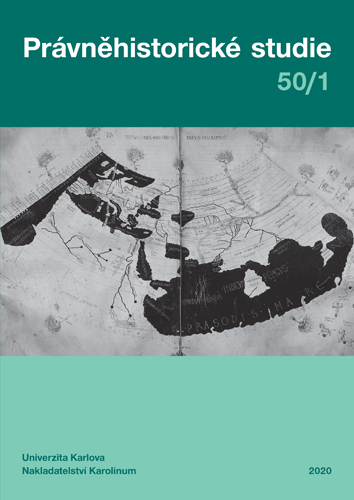K vývoji právního postavení sloužících v raném novověku
On the Development of the Legal Status of Servants in the Early Modern Period
Author(s): Ladislav NekvapilSubject(s): History of Law
Published by: Univerzita Karlova v Praze, Nakladatelství Karolinum
Keywords: servants; domestic service; Early Modern Era; labour law; wage labor
Summary/Abstract: This paper deals with the outline of the legal status of servants from the late Middle Ages up to the codification of civil law at the beginning of the 19th century. Labour law was not a simple matter during the Early Modern Era; it was a complex, multi-layered component of (primarily) the system of private law, and it operated and evolved on several different levels. In simple terms, Early Modern law pertaining to domestic service originated in a municipal legal framework or in legislation governing the institute of hereditary subjection. Both frameworks were codified during the 16th century; nevertheless, some areas of the law remained on the level of customary practice until the 18th century (e.g. in the case of members of the Estates serving as officials or employees of the nobility). The main purpose of this study is to summarize and evaluate the results of previous research focusing on the legal status of servants in the Lands of the Bohemian Crown. In a form of excursion the article also deals with the term of “compulsory service” with land nobility. In conclusion, the paper attempts to describe the analogous and different aspects of the development of the legal status of servants in the Central European area.
Journal: Právněhistorické studie
- Issue Year: 50/2020
- Issue No: 1
- Page Range: 47-65
- Page Count: 19
- Language: Czech

